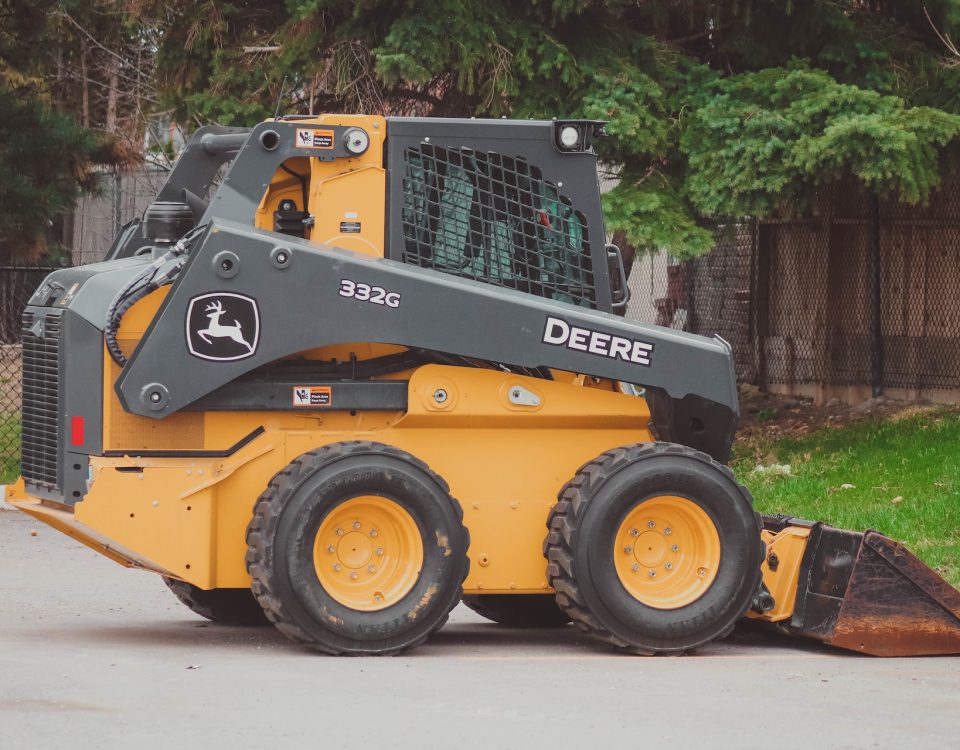
Understanding the Requirements for a Boat Driving Licence in Ontario
April 21, 2025What to Do If Your Forklift Isn’t Performing Well

Forklifts are the backbone of many businesses, especially in warehouse and logistics operations. Ensuring that these mighty machines run smoothly is vital for maintaining productivity and keeping safety standards high. When forklifts perform well, they help in moving goods efficiently and contribute to the seamless workflow of tasks. Performance issues, on the other hand, can cause significant disruptions and even pose a risk to those operating them.
Maintaining forklift performance involves regular checks and awareness of common hiccups that might arise. Recognizing the usual problems is the first step in addressing any concerns before they become serious. From engine trouble to battery glitches, understanding these issues helps keep your machinery up and running and ensures a safe environment for everyone involved.
Common Forklift Performance Issues
Knowing what can go wrong with forklifts is essential to handling problems quickly. Let’s take a look at some frequent concerns that operators might come across.
– Engine Troubles: Forklifts, like any vehicle, can experience engine issues. Symptoms might include the engine not starting, frequent stalling, or strange noises. Keeping an ear out for any unusual sounds can be an early sign that something isn’t quite right.
– Battery Woes: A forklift’s battery is its lifeline. If the battery isn’t holding a charge or the machine loses power abruptly, it’s time to inspect the connections and consider whether it’s time for a replacement.
– Hydraulic System Failures: The hydraulic system enables smooth lifting and movement. Problems here can manifest as erratic movements or complete failure of the lifting mechanism. Checking hydraulic fluid levels and ensuring no leaks are present will help in keeping the system efficient.
These issues do more than just slow down work; they can lead to safety concerns and increase costs due to unexpected downtime. Addressing these concerns promptly by conducting regular inspections can keep your forklifts performing at their best. When forklifts are in top shape, they help create a safe and productive environment for everyone.
Initial Troubleshooting Steps
When your forklift starts acting up, knowing some basic troubleshooting steps can save you a lot of hassle. Here’s a simple guide to kickstart your inspection:
1. Check Fluid Levels: Start with a look at the hydraulic fluid and engine oil levels. Low fluid levels can affect performance and might be the root cause of sluggish or erratic movements.
2. Inspect Battery Connections: Loose or corroded battery connections can lead to power issues. Ensure all connections are tight and clean, and don’t forget to check if the battery itself is holding a charge.
3. Examine Tires for Wear: Worn-out tires can impact not only the stability of the forklift but also its efficiency. Check for uneven wear patterns or damage and replace tires if needed.
By following these steps, you can often identify minor issues before they turn into major problems. Regular maintenance checks not only extend the lifespan of the forklift but also enhance performance on the job.
When to Call a Professional
While some problems are easy to handle, others may require professional expertise. Recognizing when to call in a professional can save time and prevent potential dangers:
– Unusual Noises: If you hear grinding, knocking, or any unusual sounds coming from the forklift, it’s best to get it checked immediately by an expert.
– Persistent Performance Problems: Sometimes, despite your best efforts, issues continue. If the forklift still struggles to perform after standard checks, a professional assessment is recommended.
– Safety Concerns: Any signs of unsafe operation, like erratic movement or failing brakes, require urgent professional intervention to avert accidents.
These symptoms should not be ignored, as they can lead to more severe damage or safety hazards. Expert intervention ensures that your forklift operates smoothly and safely.
Benefits of Regular Maintenance and Training
Investing in consistent maintenance and comprehensive training yields big returns. Regular check-ups can prevent many issues from arising, keeping operations running smoothly and minimizing costly downtime.
– Routine Maintenance: Scheduled maintenance prevents unexpected failures and extends the equipment’s life span. By staying proactive, you save on repair costs and keep productivity high.
– Training Importance: Well-trained operators are more adept at handling forklifts and recognizing issues early. They ensure safe operations and enhance overall workplace safety.
Incorporating these practices creates a culture of safety and efficiency, bolstering productivity and safeguarding assets.
Keeping Your Forklift in Top Shape
Ensuring your forklift operates flawlessly involves diligence in both maintenance and awareness of potential issues. Be proactive with regular checks and know when to seek professional help. This approach not only maintains the smooth function of your forklifts but also supports a safer and more productive workplace. Prioritize maintenance and training, and you’ll keep your forklifts performing well, safeguarding both your equipment and your employees.
Keep your forklifts running smoothly with regular check-ups and professional support. If you’re in Toronto, consider enhancing your team’s skills through comprehensive forklift training available at Sprint Driving School. Investing in proper training and maintenance is the key to maintaining efficiency and ensuring safety in your operations.

